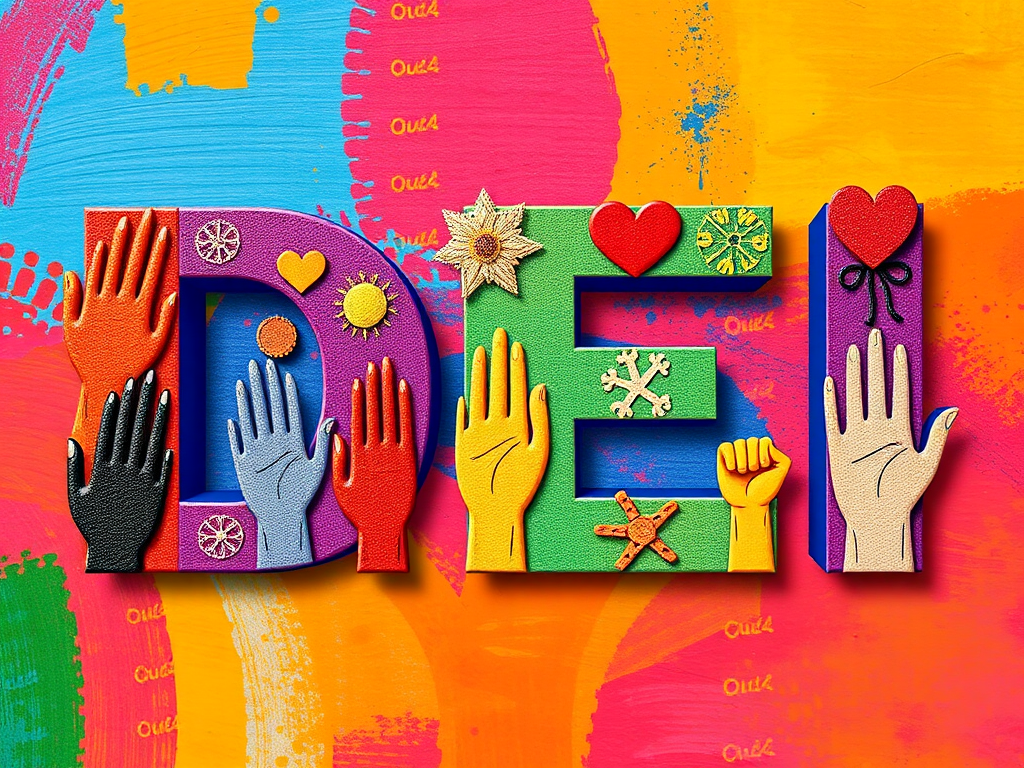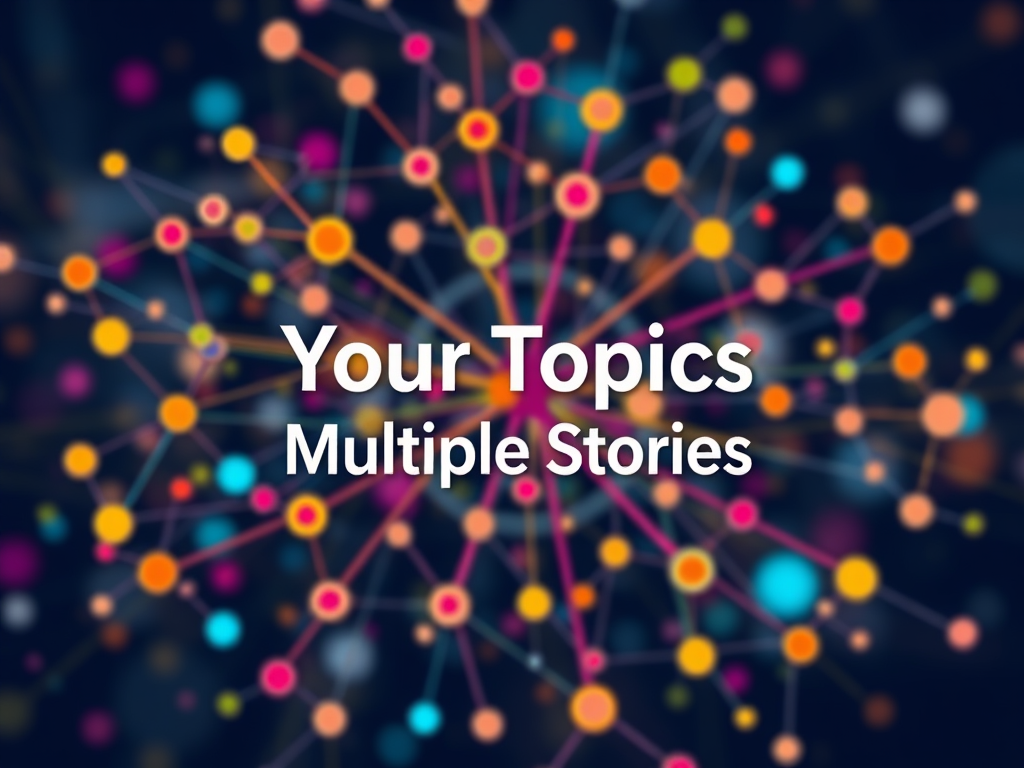The conversation around diversity, equity and inclusion (DEI) has evolved significantly in recent years, becoming a cornerstone of modern organizational culture and social progress. As we navigate 2025, understanding what DEI truly means has never been more critical for individuals, businesses, and communities alike.
Diversity, equity and inclusion represents a comprehensive framework designed to create environments where all individuals can thrive regardless of their background, identity, or circumstances. This guide explores the nuanced meanings, practical applications, and lasting impact of DEI in our contemporary society.
Those who oppose diversity usually have the most to lose
The resistance to diversity equity inclusion initiatives often stems from misconceptions and fear of change. Historically marginalized groups have faced systemic issues and barriers that prevented equal participation in various sectors of society.
Those who benefit from existing power structures may view DEI efforts as threatening their established advantages. However, research consistently demonstrates that diverse leadership teams and inclusive workplaces create better outcomes for everyone involved.
The balance of power shifts when organizations embrace fair representation and provide equal opportunities to all individuals. This doesn’t diminish existing achievements but rather expands the potential for collective success.
But what does DEI actually mean?
DEI stands for Diversity, Equity and Inclusion – three interconnected concepts that work together to create more just and effective environments:
- Diversity refers to the representation of different backgrounds, perspectives, and identities
- Equity focuses on fair distribution of resources and opportunities based on individual needs
- Inclusion ensures that everyone feels welcomed, valued, and able to participate fully
Understanding the DEI definition requires recognizing that these elements must work in harmony. Diversity without inclusion leads to tokenism, while equity without diversity may not address systemic barriers effectively.
What Does Diversity, Equity and Inclusion Mean?
Diversity
Diversity encompasses the full spectrum of human differences, including but not limited to:
| Diversity Dimensions | Examples |
|---|---|
| Racial and Ethnic | Different cultural backgrounds and ethnicities |
| Gender Identity | All gender expressions and identities |
| Sexual Orientation | LGBTQ+ individuals and allies |
| Socioeconomic Status | Lower-socioeconomic communities and various income levels |
| Physical Abilities | Individuals with disabilities and different physical capabilities |
| Age | Multi-generational perspectives |
| Educational Background | Varied perspectives from different educational experiences |
Diversity creates multicultural workplaces where different backgrounds contribute to richer problem-solving and innovation. Organizations embracing demographic representation benefit from diverse voices and variety of viewpoints.
Equity
Equity differs fundamentally from equality. While equality provides the same resources to everyone, equity recognizes that people start from different positions and may need different levels of support to achieve fair treatment.
Equity involves:
- Resource allocation based on individual circumstances
- Addressing systemic barriers that prevent equal access
- Creating equitable treatment that considers starting points
- Ensuring fair chances for all individuals to succeed
The concept of equity aims to level the playing field by providing additional support where needed, rather than treating everyone identically.
Inclusion
Inclusion creates environments where individuals feel they truly belong and can contribute authentically. Inclusive culture is characterized by:
- Psychological safety for all team members
- Open communication and active participation
- Respect for differences and diverse perspectives
- Welcoming environments where everyone feels comfortable
- Safe spaces for honest dialogue and collaboration
Inclusion transforms diversity from mere representation into meaningful engagement and shared experiences.
Diversity Equity Inclusion Examples of Diversity, Equity and Inclusion
Real-world applications of DEI principles demonstrate their practical impact across various sectors:
Access to School Lunch
Educational equity is exemplified through free or reduced lunch programs. In Washington, DC, 76.4% of school children are eligible for these programs, highlighting significant economic disparity.
Equity in this context means:
- Recognizing that not all families can afford nutritious meals
- Providing additional support to lower-socioeconomic communities
- Ensuring all children have equal access to proper nutrition for learning
- Addressing barriers that might prevent program participation
Economic Disparity
Economic disparity affects entire communities, creating systemic issues that require equitable treatment. Financial Empowerment Centers in the National Capital Area work to address these disparities by:
- Providing financial literacy education
- Offering resources for affordable housing
- Supporting pathways to financial freedom
- Helping individuals overcome poverty through targeted assistance
The United Way of the National Capital Area demonstrates how organizations can advocate for underserved groups while building community resiliency.
Safe Pregnancies
Healthcare equity is starkly illustrated in maternal health statistics. Black women face 3-4 times higher likelihood of pregnancy-related deaths compared to white women, often due to lack of adequate prenatal care.
DEI approaches to maternal health include:
- Ensuring healthcare access for all pregnant individuals
- Addressing health disparities through targeted programs
- Providing culturally competent medical care
- Supporting wellness programs that reach marginalized communities
How to Promote Diversity, Equity and Inclusion in Your Community
Building inclusive communities requires intentional action and sustained commitment. Effective strategies include:
Community Engagement
- Volunteering with organizations serving diverse populations
- Advocating for policies that promote social justice
- Supporting grassroots initiatives that address community challenges
- Participating in civic engagement and local government
Educational Initiatives
- Diversity training programs for community leaders
- Cultural acceptance events and celebrations
- Educational access programs for underrepresented groups
- Mentorship programs connecting diverse community members
Economic Development
- Supporting minority-owned businesses
- Creating opportunities for economic empowerment
- Addressing wealth gaps through targeted programs
- Promoting fair hiring practices in local organizations
Diversity, Equity, and Inclusion in the Workplace
Workplace diversity has evolved from compliance requirement to strategic advantage. Inclusive workplaces demonstrate measurable benefits:
Leadership and Management
Diverse leadership teams show 35% increased likelihood of outperforming their peers. Inclusive leaders create environments characterized by:
- Flexible work arrangements accommodating different needs
- Professional development opportunities for all employees
- Employee engagement strategies that value different perspectives
- Talent management practices that promote fair representation
Organizational Culture
Corporate diversity initiatives focus on creating welcoming environments where:
- Open communication is encouraged and practiced
- Psychological comfort allows authentic self-expression
- Mutual understanding bridges cultural differences
- Team diversity enhances business performance
Policies and Practices
Effective workplace policies include:
| Policy Area | DEI Implementation |
|---|---|
| Recruitment | Inclusive hiring practices and diverse candidate pools |
| Performance | Equity audits of promotion and compensation decisions |
| Development | Mentorship programs and leadership development for underrepresented groups |
| Culture | Safe spaces for dialogue and cultural celebrations |
Why is Diversity, Equity, and Inclusion Important?
The importance of DEI extends far beyond compliance or social responsibility – it creates tangible benefits for organizations and society.
DEI is a Shared Goal
DEI represents a collective commitment to creating better outcomes for everyone. This shared goal recognizes that:
- Individual dignity benefits the entire community
- Social connection strengthens organizational bonds
- Community partnerships create lasting positive change
- Strategic planning must include diverse perspectives
DEI Helps Solve Problems
Diverse teams approach challenges with varied perspectives, leading to more innovative solutions. Problem-solving improves when teams include:
- Different cultural approaches to challenges
- Varied experiences informing decision-making
- Multiple viewpoints on potential solutions
- Creative thinking from diverse backgrounds
DEI Strengthens Our Connection to Brands
Consumers increasingly expect social responsibility from organizations. DEI initiatives create stronger connections by:
- Demonstrating authentic commitment to social change
- Reflecting customer demographics in organizational representation
- Supporting community development through targeted programs
- Building trust through transparent diversity metrics
dei meaning in politics
In political contexts, DEI represents efforts to ensure equal representation and fair treatment in government institutions and public policy. Political DEI focuses on:
- Equal opportunity in political participation
- Fair representation in elected offices
- Public policy that addresses systemic inequalities
- Government accountability for inclusive practices
Political DEI initiatives may include voter registration drives in underrepresented communities, support for diverse candidates, and policies addressing racial inequality.
dei examples
Practical DEI examples demonstrate successful implementation across various sectors:
Corporate Examples
- Mentorship programs pairing senior leaders with diverse talent
- Supplier diversity programs supporting minority-owned businesses
- Employee resource groups fostering cultural acceptance
- Flexible work arrangements accommodating different life circumstances
Educational Examples
- Scholarship programs for underrepresented students
- Inclusive curriculum reflecting diverse perspectives
- Cultural celebrations promoting multicultural understanding
- Support services addressing educational barriers
Community Examples
- Community outreach programs serving diverse populations
- Public services designed with cultural competency
- Economic development initiatives in underserved areas
- Healthcare programs addressing health disparities
dei meaning in business
Business DEI encompasses comprehensive strategies for creating inclusive workplaces that drive organizational success. Corporate diversity initiatives focus on:
Strategic Benefits
- Business performance improvements through diverse teams
- Innovation from varied perspectives and experiences
- Market expansion through better understanding of diverse customers
- Risk management through more comprehensive decision-making
Implementation Strategies
- Diversity training for all employees and leadership
- Inclusive hiring practices and recruitment strategies
- Performance indicators measuring DEI progress
- Leadership development programs for underrepresented groups
dei meaning latin
The Latin term “dei” means “of God” or “divine,” which differs entirely from the DEI acronym meaning Diversity, Equity, and Inclusion. This distinction is important when discussing DEI in various contexts to avoid confusion.
dei meaning in government
Government DEI initiatives focus on ensuring equal access to public services and fair representation in government institutions. Federal DEI programs include:
- Equal opportunity employment practices
- Public service delivery that reaches diverse communities
- Policy development incorporating diverse perspectives
- Civic engagement encouraging participation from all communities
Government DEI efforts aim to create trust between institutions and the diverse populations they serve.
dei meaning in bible
While “DEI” as Diversity, Equity, and Inclusion doesn’t appear in biblical texts, many faith communities find biblical support for DEI principles through passages emphasizing love, justice, and equality among all people.
Religious DEI applications include:
- Inclusive worship welcoming all backgrounds
- Social justice advocacy rooted in faith principles
- Community service addressing inequality and poverty
- Interfaith dialogue promoting mutual understanding
why is dei important
DEI importance stems from both moral imperatives and practical benefits:
Moral Imperative
- Human dignity requires fair treatment for all individuals
- Social justice demands addressing historical inequities
- Equal opportunity reflects fundamental democratic values
- Community responsibility includes caring for all members
Practical Benefits
- Economic growth through full utilization of human potential
- Innovation from diverse thinking and perspectives
- Social stability through reduced inequality and conflict
- Organizational effectiveness through inclusive practices
dei hire meaning
DEI hiring refers to recruitment and employment practices designed to increase diversity while maintaining merit-based selection. Inclusive hiring practices include:
- Diverse recruitment strategies reaching underrepresented populations
- Bias reduction in interview and selection processes
- Equitable evaluation criteria applied consistently
- Inclusive onboarding supporting new employees from all backgrounds
DEI hiring aims to create opportunities for qualified candidates who might otherwise face barriers to employment.
final thoughts
Diversity, equity and inclusion represents more than buzzwords or compliance requirements – it embodies a fundamental commitment to creating environments where all individuals can thrive. As we progress through 2025, DEI continues evolving from concept to practice, creating measurable benefits for organizations and communities.
The journey toward full DEI implementation requires ongoing commitment, continuous learning, and willingness to address systemic barriers. Success depends on authentic leadership, inclusive practices, and recognition that diversity strengthens rather than divides us.
DEI creates welcoming environments where individual differences become collective strengths. By embracing equity over mere equality, inclusion beyond representation, and diversity as opportunity rather than challenge, we build stronger communities and more successful organizations.
The future belongs to those who understand that DEI isn’t about giving up opportunities but rather about expanding them for everyone. When we level the playing field and ensure everyone has a seat at the table, we create conditions for unprecedented innovation, growth, and social progress.
DEI matters because people matter – all people, regardless of background, identity, or circumstances. This fundamental truth drives the continued evolution of diversity, equity and inclusion as both aspiration and achievable reality.

Catherine Frank, founder of BiblicalHorizon.com, shares daily prayers and Bible verses to nurture spiritual growth. With a lifelong passion for scripture and prayer traditions, she creates accessible spiritual content that resonates with both seasoned believers and newcomers seeking divine connection.



